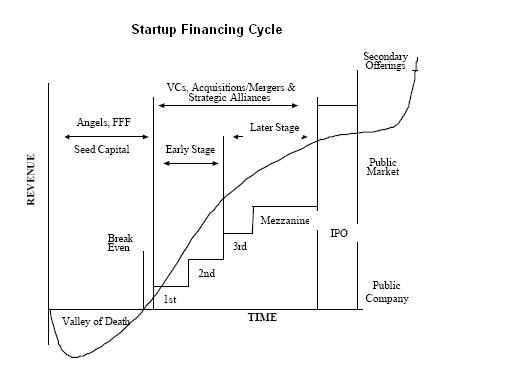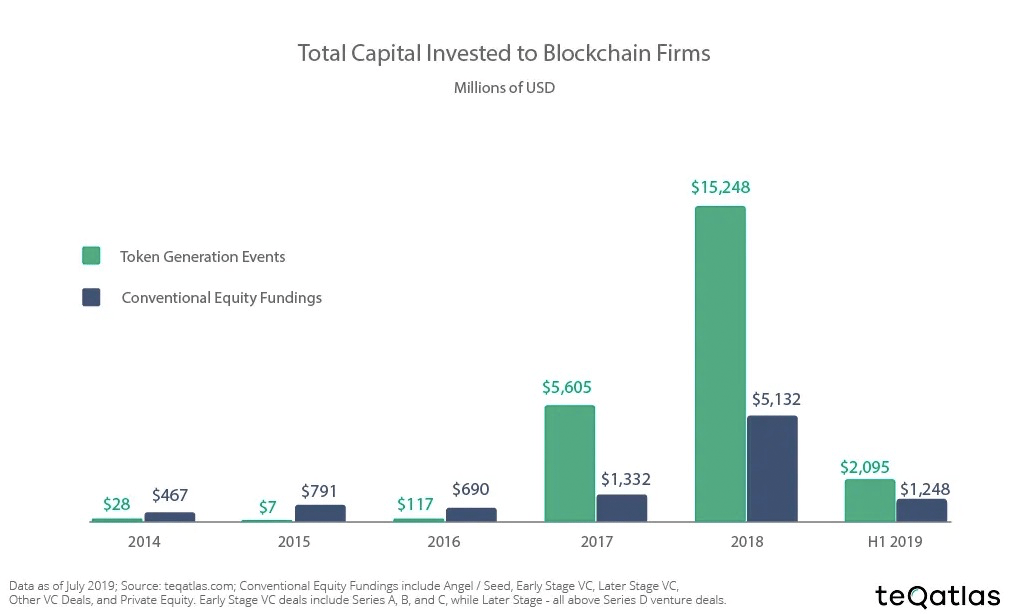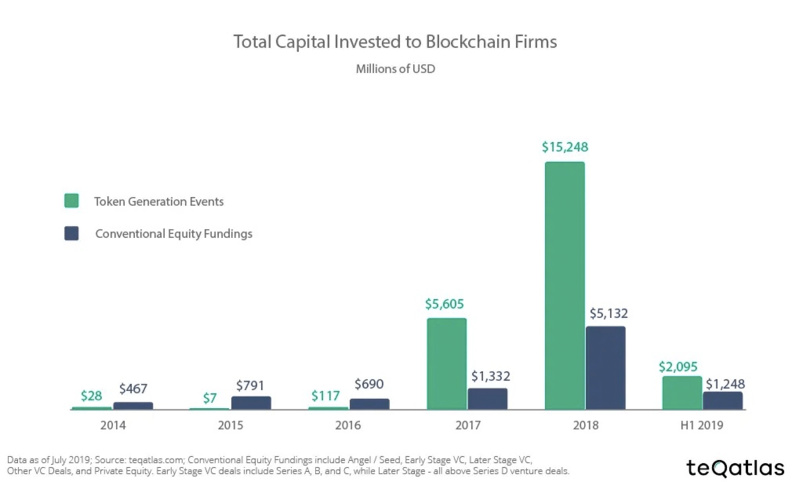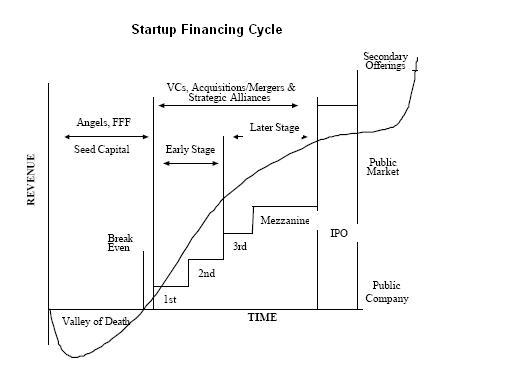Is the current state of blockchain development ready to attract a large number of users? For the technology to become mainstream, it needs to be applied in ways that people actually find useful and provide a much better experience than what is already available. Can social media be crypto’s killer app? Decentralized and decentralizing technologies are challenging and changing how we manage our digital identities and who has access to our data.
A couple of weeks a couple of stories surfaced in the news. The first was that Kik was shutting down its messenger app and cutting its staff from over 100 people to just 19 employees. Kik climbed to prominence alongside other well-known messenger apps like WhatsApp, Facebook Messenger, and Telegram with its distinguishing feature of being privacy-centric. The second was that officials in the U.S., U.K. and Australia were pressing Facebook to give authorities a way to read encrypted messages sent by ordinary users, re-igniting tensions between tech companies and law enforcement.
If there’s one thing the Internet lacks, it’s privacy.
The cryptocurrency industry is 10 years old. The Internet was developed in the 70s, 80s and 90s and it didn’t really take off until the browser was created. Just like the Internet the cryptocurrency market needed to build its bridges and roads. I think that our Netscape moment has come. We now have the infrastructure to launch scalable decentralized applications on blockchain. The future of the internet is distributed, decentralized applications and not just things like cryptocurrency.
Some of the things, that are going to drive mass adoption for cryptocurrencies and blockchain, will be the same things that we use on the today on Internet, things like new decentralized social networks and messenger apps.
More and more, trends point to decentralization being the next step for social media. Almost all traditional social media apps track user activity and sell the aggregated information, behavior, and habits to provide the highest bidder with better targeting for their advertising and marketing campaigns. Two years ago, Facebook brought in $9.32 billion in revenue in the second quarter, mostly from mobile ads, and kept the profits to themselves.
At this point you can build just about anything on blockchain that you can build on the traditional Internet. Today, you can build a new Facebook entirely using a blockchain, and best of all, users could have absolute control of their data. We could control who has access to our data and give our permission to advertisers to access our data. We might even be the beneficiary of any renumeration that occurs because of access to our data. Imagine a world where you, the user, receives all of the revenues that are generated from your data and you know who has access to it.
Is that something you’d be interested using? I think that most of us would be.
It’s going to be exciting to watch how things develop over the next year, in the battle between the centralized social networks and the decentralized networks that are fighting for privacy, consent and user participation in the revenues that are generated.
Even more exciting will be messaging. Today, most of us are concerned over privacy. Is your Signal, Telegram, WhatsApp or Skype applications secure? Do you know? No, you don’t. You have to trust those platforms are doing what they say they’re doing. Blockchain enables a security layer to secure messaging systems, that even the companies offering the systems cannot access your data.
Decentralization doesn’t just mean more protection for personal data. It puts the power back into the hands of users by allowing them to have complete control over the information they give and receive, by eliminating the bias of ad-based centralized models that use our personal data.
A couple of weeks a couple of stories surfaced in the news. The first was that Kik was shutting down its messenger app and cutting its staff from over 100 people to just 19 employees. Kik climbed to prominence alongside other well-known messenger apps like WhatsApp, Facebook Messenger, and Telegram with its distinguishing feature of being privacy-centric. The second was that officials in the U.S., U.K. and Australia were pressing Facebook to give authorities a way to read encrypted messages sent by ordinary users, re-igniting tensions between tech companies and law enforcement.
If there’s one thing the Internet lacks, it’s privacy.
The cryptocurrency industry is 10 years old. The Internet was developed in the 70s, 80s and 90s and it didn’t really take off until the browser was created. Just like the Internet the cryptocurrency market needed to build its bridges and roads. I think that our Netscape moment has come. We now have the infrastructure to launch scalable decentralized applications on blockchain. The future of the internet is distributed, decentralized applications and not just things like cryptocurrency.
Some of the things, that are going to drive mass adoption for cryptocurrencies and blockchain, will be the same things that we use on the today on Internet, things like new decentralized social networks and messenger apps.
More and more, trends point to decentralization being the next step for social media. Almost all traditional social media apps track user activity and sell the aggregated information, behavior, and habits to provide the highest bidder with better targeting for their advertising and marketing campaigns. Two years ago, Facebook brought in $9.32 billion in revenue in the second quarter, mostly from mobile ads, and kept the profits to themselves.
At this point you can build just about anything on blockchain that you can build on the traditional Internet. Today, you can build a new Facebook entirely using a blockchain, and best of all, users could have absolute control of their data. We could control who has access to our data and give our permission to advertisers to access our data. We might even be the beneficiary of any renumeration that occurs because of access to our data. Imagine a world where you, the user, receives all of the revenues that are generated from your data and you know who has access to it.
Is that something you’d be interested using? I think that most of us would be.
It’s going to be exciting to watch how things develop over the next year, in the battle between the centralized social networks and the decentralized networks that are fighting for privacy, consent and user participation in the revenues that are generated.
Even more exciting will be messaging. Today, most of us are concerned over privacy. Is your Signal, Telegram, WhatsApp or Skype applications secure? Do you know? No, you don’t. You have to trust those platforms are doing what they say they’re doing. Blockchain enables a security layer to secure messaging systems, that even the companies offering the systems cannot access your data.
Decentralization doesn’t just mean more protection for personal data. It puts the power back into the hands of users by allowing them to have complete control over the information they give and receive, by eliminating the bias of ad-based centralized models that use our personal data.
Source: Teqatlas.com
Tokens are a powerful new way of funding companies. The ICO phenomenon presents a huge threat to the traditional VC model. They offer an opportunity for liquid investments and faster exits. In 2017 and 2018, funds raised by blockchain startups through ICOs surpassed VC investments in the sector. The primary reason for the rise of ICOs is the difficulty that startups face, when they try raise a VC round.
While Initial Coin Offerings (ICOs) have had their fair share or problems, they are still here with us. They have matured and morphed into IEOs (initial Exchange Offerings), with cryptocurrency exchanges acting as underwriters.
Token Sales 1.0 were a completely out of control, with the issuer marketing directly to the contributor and raising too much money, far beyond their needs. But with IEOs, we are seeing a much more rational and sane approach. Exchanges are in the middle, acting as underwriters that filter projects, limit the number of projects and the size of the offering. This allows innovators to access capital markets to get the resources they need.
Beyond, IEOs. you can expect that in the future, Security tokens (STOs) are going to be huge. It’s going to be a while before STOs really take off, but when they do everything will be tokenized, including private equity and venture capital markets.
In the last four decades, VCs have helped create some of the greatest companies, like Apple, Microsoft, Google, Amazon and Facebook and in the process made tons of money for themselves and their LPs (Limited Partners).
Venture capitalists invest in equity, so they look for startups that have big and fast exit potential. VCs look for startups that can scale quickly, in a few years from initial funding, and will be acquired or go public at high valuations. With nine our ten startups failing in their first three years, venture capital is high risk. From their winning picks, VCs need to recover their loses and make money for their investors. Wins don’t happen a lot, but when they do, they’re huge. Venture capital is a skewed-distribution business, sustained by highly lucrative, but low-probability payoff events. It’s very much like whaling in the nineteenth century.
When you look at the VC market, it’s a very competitive industry. VCs need to raise money to turn on the lights in the office. Limited Partners provide the capital, while General Partners invest it, into multiple startups, based on their investment thesis.
Tokens are a powerful new way of funding companies. The ICO phenomenon presents a huge threat to the traditional VC model. They offer an opportunity for liquid investments and faster exits. In 2017 and 2018, funds raised by blockchain startups through ICOs surpassed VC investments in the sector. The primary reason for the rise of ICOs is the difficulty that startups face, when they try raise a VC round.
While Initial Coin Offerings (ICOs) have had their fair share or problems, they are still here with us. They have matured and morphed into IEOs (initial Exchange Offerings), with cryptocurrency exchanges acting as underwriters.
Token Sales 1.0 were a completely out of control, with the issuer marketing directly to the contributor and raising too much money, far beyond their needs. But with IEOs, we are seeing a much more rational and sane approach. Exchanges are in the middle, acting as underwriters that filter projects, limit the number of projects and the size of the offering. This allows innovators to access capital markets to get the resources they need.
Beyond, IEOs. you can expect that in the future, Security tokens (STOs) are going to be huge. It’s going to be a while before STOs really take off, but when they do everything will be tokenized, including private equity and venture capital markets.
In the last four decades, VCs have helped create some of the greatest companies, like Apple, Microsoft, Google, Amazon and Facebook and in the process made tons of money for themselves and their LPs (Limited Partners).
Venture capitalists invest in equity, so they look for startups that have big and fast exit potential. VCs look for startups that can scale quickly, in a few years from initial funding, and will be acquired or go public at high valuations. With nine our ten startups failing in their first three years, venture capital is high risk. From their winning picks, VCs need to recover their loses and make money for their investors. Wins don’t happen a lot, but when they do, they’re huge. Venture capital is a skewed-distribution business, sustained by highly lucrative, but low-probability payoff events. It’s very much like whaling in the nineteenth century.
When you look at the VC market, it’s a very competitive industry. VCs need to raise money to turn on the lights in the office. Limited Partners provide the capital, while General Partners invest it, into multiple startups, based on their investment thesis.

Source: Wikipedia
But regardless of the competition and the high risk involved, billions of dollars are poured into VC funds around the world, because of those few, big wins.
The biggest problem that venture capital industry faces is that VC funds are not liquid.
When it comes to investing in private companies, putting money into a venture is often the easy part. It’s getting the money out, hopefully more than what was originally invested, that’s the problem. Limited Partners are locked in for several years and in most cases are restricted from trading or selling their investments to other parties. Invested companies are expected to execute flawlessly for 5–7 years, and provide appreciation on the invested capital, through multiple fundraising rounds. An “exit” through merger or an acquisition is usually the most common way startup investors are able to liquidate their positions. After an exit event, VCs pass back the returns to the Limited Partners.
In the “The Business of Venture Capital”, Mahendra Ramsinghani describes the problem as follows: “A VC partnership is a 10-year blind- pool, a long relationship in which investors have limited ability to exit, and no clarity of outcomes.”
Making VC funds liquid can and will transform the entire industry.
Venture capital funds will become more inclusive, within regulatory frameworks, and potentially attract billions of new dollars. Liquid VC funds, will not only give qualified investors the option to exit early. It may also provide opportunities to increase IRR (Internal Rate of Return). Liquidity can provide a faster feedback loop. If people believe in the fund, the token price will go up. When a company exits, the returns go back into the fund. Smart contracts can seamlessly transfer money and ensure LPs and GPs receive the correct returns instantly. With increased IRR, General Partners will be in a better position to raise a new fund.
Liquidity opens venture capital to new audiences, making funds more inclusive. This is a huge advantage because more investors can afford to participate, without the need to forget about their money for 7-10 years. Tokens will be easily tradable on cryptocurrency exchanges. While secondary markets exist for LP positions, they are illiquid and the process can be very slow. In a tokenized fund, an investors can enter, exit and re-enter a fund as many times as they want. If an investor decides they would rather invest elsewhere, they sell their tokens at the current market price.
Venture capital is a powerful investment vehicle that allows emerging technologies to grow and develop. Tokenizing funds removes rigid positions of GP’s & LPs and allows them to collaboratively map investment efforts, with more liquidity to invest in even more startups. Tokenizing venture capital is even more powerful, and lets early-stage startups, not only survive but thrive.
But regardless of the competition and the high risk involved, billions of dollars are poured into VC funds around the world, because of those few, big wins.
The biggest problem that venture capital industry faces is that VC funds are not liquid.
When it comes to investing in private companies, putting money into a venture is often the easy part. It’s getting the money out, hopefully more than what was originally invested, that’s the problem. Limited Partners are locked in for several years and in most cases are restricted from trading or selling their investments to other parties. Invested companies are expected to execute flawlessly for 5–7 years, and provide appreciation on the invested capital, through multiple fundraising rounds. An “exit” through merger or an acquisition is usually the most common way startup investors are able to liquidate their positions. After an exit event, VCs pass back the returns to the Limited Partners.
In the “The Business of Venture Capital”, Mahendra Ramsinghani describes the problem as follows: “A VC partnership is a 10-year blind- pool, a long relationship in which investors have limited ability to exit, and no clarity of outcomes.”
Making VC funds liquid can and will transform the entire industry.
Venture capital funds will become more inclusive, within regulatory frameworks, and potentially attract billions of new dollars. Liquid VC funds, will not only give qualified investors the option to exit early. It may also provide opportunities to increase IRR (Internal Rate of Return). Liquidity can provide a faster feedback loop. If people believe in the fund, the token price will go up. When a company exits, the returns go back into the fund. Smart contracts can seamlessly transfer money and ensure LPs and GPs receive the correct returns instantly. With increased IRR, General Partners will be in a better position to raise a new fund.
Liquidity opens venture capital to new audiences, making funds more inclusive. This is a huge advantage because more investors can afford to participate, without the need to forget about their money for 7-10 years. Tokens will be easily tradable on cryptocurrency exchanges. While secondary markets exist for LP positions, they are illiquid and the process can be very slow. In a tokenized fund, an investors can enter, exit and re-enter a fund as many times as they want. If an investor decides they would rather invest elsewhere, they sell their tokens at the current market price.
Venture capital is a powerful investment vehicle that allows emerging technologies to grow and develop. Tokenizing funds removes rigid positions of GP’s & LPs and allows them to collaboratively map investment efforts, with more liquidity to invest in even more startups. Tokenizing venture capital is even more powerful, and lets early-stage startups, not only survive but thrive.

Ilias Louis Hatzis
Ilias Louis Hatzis is the Founder & CEO at Mercato Blockchain Corporation AG.
He writes the Blockchain Weekly Front Page each Monday.I have no positions or commercial relationships with the companies or people mentioned. I am not receiving compensation for this post.
Subscribe by email to join the 25,000 other Fintech leaders who read our research daily to stay ahead of the curve.
I have no positions or commercial relationships with the companies or people mentioned. I am not receiving compensation for this post.
http://dailyfintech.com
He writes the Blockchain Weekly Front Page each Monday.I have no positions or commercial relationships with the companies or people mentioned. I am not receiving compensation for this post.
Subscribe by email to join the 25,000 other Fintech leaders who read our research daily to stay ahead of the curve.
I have no positions or commercial relationships with the companies or people mentioned. I am not receiving compensation for this post.
http://dailyfintech.com
Finyear & Chaineum
Lisez gratuitement le quotidien Finyear & sa newsletter quotidienne.
Recevez chaque matin par mail la newsletter Finyear, une sélection quotidienne des meilleures infos et expertises en finance digitale, corporate finance & crypto finance.
Read for free The daily newspaper Finyear & its daily newsletter.
Receive the Finyear's newsletter every morning by email, a daily snapshot of the best news and expertise in digital finance, corporate finance & crypto finance.
------------------------
Chaineum :
Fondée en 2015, Chaineum est un cabinet de conseil en opérations de haut de bilan offrant une expertise de premier plan en matière d’ICO et STO, avec une vision stratégique orientée tant vers le métier de ses clients que sur la technologie blockchain. A ce titre, Chaineum a participé à la mise en œuvre de bonnes pratiques dans le secteur (ICO Charter, Security Token Network).
La division services blockchain de Chaineum, développe la technologie Chaineum Segment, une blockchain privée orientée objets.
About Chaineum:
Founded in 2015, Chaineum is a leading corporate finance advisory firm with a strong expertise in ICO and STO, and a strategic focus on both its clients' business and blockchain technology. As such, Chaineum paved the way in the implementation of certain best practices in this sector (ICO Charter, Security Token Network).
Chaineum's blockchain services division, is developing Chaineum Segment technology, an object-oriented private blockchain.
-------------------------
Recevez chaque matin par mail la newsletter Finyear, une sélection quotidienne des meilleures infos et expertises en finance digitale, corporate finance & crypto finance.
Read for free The daily newspaper Finyear & its daily newsletter.
Receive the Finyear's newsletter every morning by email, a daily snapshot of the best news and expertise in digital finance, corporate finance & crypto finance.
------------------------
Chaineum :
Fondée en 2015, Chaineum est un cabinet de conseil en opérations de haut de bilan offrant une expertise de premier plan en matière d’ICO et STO, avec une vision stratégique orientée tant vers le métier de ses clients que sur la technologie blockchain. A ce titre, Chaineum a participé à la mise en œuvre de bonnes pratiques dans le secteur (ICO Charter, Security Token Network).
La division services blockchain de Chaineum, développe la technologie Chaineum Segment, une blockchain privée orientée objets.
About Chaineum:
Founded in 2015, Chaineum is a leading corporate finance advisory firm with a strong expertise in ICO and STO, and a strategic focus on both its clients' business and blockchain technology. As such, Chaineum paved the way in the implementation of certain best practices in this sector (ICO Charter, Security Token Network).
Chaineum's blockchain services division, is developing Chaineum Segment technology, an object-oriented private blockchain.
-------------------------
No Offer, Solicitation, Investment Advice, or Recommendations
This website is for informational purposes only and does not constitute an offer to sell, a solicitation to buy, or a recommendation for any security, nor does it constitute an offer to provide investment advisory or other services by FINYEAR.
No reference to any specific security constitutes a recommendation to buy, sell or hold that security or any other security.
Nothing on this website shall be considered a solicitation or offer to buy or sell any security, future, option or other financial instrument or to offer or provide any investment advice or service to any person in any jurisdiction.
Nothing contained on the website constitutes investment advice or offers any opinion with respect to the suitability of any security, and the views expressed on this website should not be taken as advice to buy, sell or hold any security. In preparing the information contained in this website, we have not taken into account the investment needs, objectives and financial circumstances of any particular investor.
This information has no regard to the specific investment objectives, financial situation and particular needs of any specific recipient of this information and investments discussed may not be suitable for all investors.
Any views expressed on this website by us were prepared based upon the information available to us at the time such views were written. Changed or additional information could cause such views to change.
All information is subject to possible correction. Information may quickly become unreliable for various reasons, including changes in market conditions or economic circumstances.
No reference to any specific security constitutes a recommendation to buy, sell or hold that security or any other security.
Nothing on this website shall be considered a solicitation or offer to buy or sell any security, future, option or other financial instrument or to offer or provide any investment advice or service to any person in any jurisdiction.
Nothing contained on the website constitutes investment advice or offers any opinion with respect to the suitability of any security, and the views expressed on this website should not be taken as advice to buy, sell or hold any security. In preparing the information contained in this website, we have not taken into account the investment needs, objectives and financial circumstances of any particular investor.
This information has no regard to the specific investment objectives, financial situation and particular needs of any specific recipient of this information and investments discussed may not be suitable for all investors.
Any views expressed on this website by us were prepared based upon the information available to us at the time such views were written. Changed or additional information could cause such views to change.
All information is subject to possible correction. Information may quickly become unreliable for various reasons, including changes in market conditions or economic circumstances.
Autres articles
-
France Fintech édite le guide pratique à l'usage des fintechs
-
La fintech française, Powens officialise son rapprochement avec l'Espagnole Unnax. Objectif : devenir le leader de l'open finance et de la finance embarquée en Europe
-
Stables amorce un nouveau virage stratégique avec l'arrivée Tezos et d'un nouveau DG au capital
-
Stage - Corporate Finance (M/F) - Luxembourg
-
Pomelo annonce une Série A à 35 millions de dollars menée par Vy Capital




















